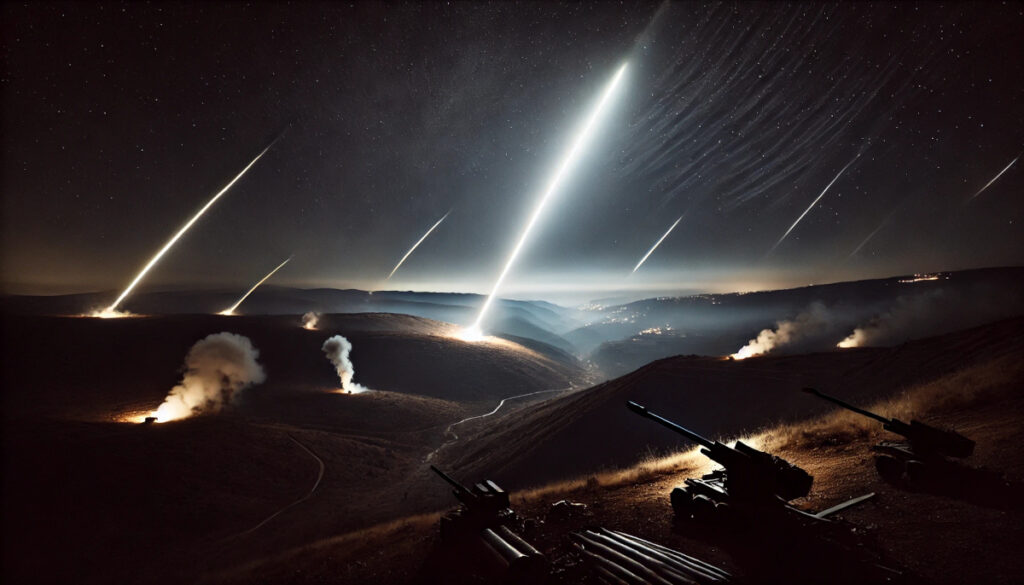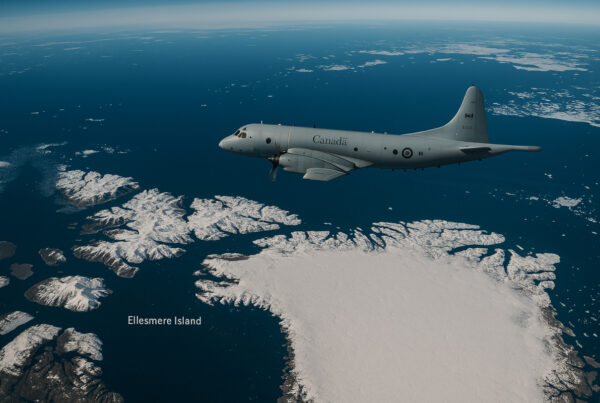 The Israeli military’s ground invasion of southern Lebanon, launched in the early hours of September 30, 2024, marks a dangerous escalation in the volatile conflict between Israel and Hezbollah. What began as small, tactical raids by Israeli commandos has the potential to turn into a broader offensive, further destabilizing the region. Already, the conflict is rapidly expanding beyond the local borders, raising the specter of direct Iranian involvement and the possibility of a larger regional war.
The Israeli military’s ground invasion of southern Lebanon, launched in the early hours of September 30, 2024, marks a dangerous escalation in the volatile conflict between Israel and Hezbollah. What began as small, tactical raids by Israeli commandos has the potential to turn into a broader offensive, further destabilizing the region. Already, the conflict is rapidly expanding beyond the local borders, raising the specter of direct Iranian involvement and the possibility of a larger regional war.
Background and Current Situation
For weeks, tensions have been simmering along the Israel-Lebanon border. Following the October 7, 2024, Hamas-led assault on Israel, Hezbollah, an Iran-backed militia group, ramped up its attacks from Lebanese territory. In response, Israel launched a series of punishing airstrikes across southern Lebanon, killing over 1,000 people, including both Hezbollah fighters and civilians. The strikes targeted Hezbollah’s leadership and military infrastructure, with Israeli officials declaring that they would continue until northern Israeli residents, displaced by the cross-border attacks, could safely return to their homes.
While the initial raids conducted by Israeli commandos were limited in scope, focusing on intelligence gathering and targeted strikes, there are increasing indications that Israel is preparing for a full-scale ground invasion. Lebanese forces have already withdrawn from several border checkpoints amid heavy Israeli artillery shelling. The Israeli military has yet to make its long-term intentions clear, but senior officials suggest that a wider offensive could be on the horizon.
Hezbollah’s Role and Iran’s Shadow
Hezbollah, widely recognized as one of the most formidable non-state military forces in the region, has vowed to resist any Israeli ground incursion. The group’s deputy leader, Naim Kassem, stated in a televised address that Hezbollah’s forces are “ready for a ground engagement.” As Hezbollah steps up its retaliatory attacks on Israeli military positions, the prospect of prolonged ground battles increases. Any ground invasion of southern Lebanon could lead to heavy casualties on both sides, sparking greater instability in the region.
Iran’s role in this conflict cannot be overstated. As Hezbollah’s primary backer, Iran provides the group with financial, military, and logistical support. Over the past decade, Tehran has strengthened its influence across the Middle East, particularly through proxy militias in Iraq, Syria, and Yemen. Should Israel’s ground invasion intensify, there is a very real danger that Iran could directly intervene. Iranian officials have long regarded Hezbollah as a key element of their strategy to exert influence over Lebanon and challenge Israel’s regional hegemony.
The possibility of Iranian retaliation looms large, especially considering recent Israeli airstrikes on Iranian-backed Houthis in Yemen. The Houthis, who have also been involved in launching ballistic missiles toward Israel, are another example of Iran’s influence in regional conflicts. By attacking Iranian proxies in multiple locations, Israel is sending a clear message that it is prepared to confront Iran directly, should Tehran escalate its involvement.
Hassan Nasrallah
The death of Hassan Nasrallah, the longtime leader of Hezbollah, has dramatically altered the strategic landscape in Lebanon and is a critical factor in Israel’s current ground invasion. Nasrallah, a central figure in Hezbollah’s rise to power and its long-standing conflict with Israel, was killed during an Israeli airstrike that targeted senior Hezbollah officials. His death leaves a significant leadership vacuum within the organization and could provoke a fierce response from Hezbollah fighters, who see this as a major blow to their movement.
Israel’s decision to invade southern Lebanon can be seen as an attempt to capitalize on the destabilization within Hezbollah following Nasrallah’s death. By launching a ground invasion now, Israel may hope to weaken Hezbollah’s military infrastructure before a new leader can consolidate power. However, Nasrallah’s assassination also risks inflaming the conflict further, as Hezbollah militants, along with their Iranian backers, may seek swift and aggressive retaliation, further escalating tensions across the region
Potential for a Regional Conflict
The conflict in southern Lebanon is not an isolated incident; rather, it is part of a broader geopolitical contest in the Middle East. The U.S. has responded to Israel’s actions by deploying additional forces to the region, focused on air defense capabilities. American officials are deeply concerned that Iran might use its proxies to retaliate against U.S. troops stationed in Iraq and Syria, further complicating the situation.
A regional war, sparked by Israeli-Iranian hostilities, would have profound implications for the stability of the Middle East. In recent years, the region has witnessed the deep entrenchment of proxy warfare, with Iran and Israel often operating on opposite sides of various conflicts. Iranian-backed militias in Iraq and Syria could be activated to attack Israeli interests, while Hezbollah and other Iranian proxies could launch a broader campaign against Israel from Lebanese soil.
Moreover, Lebanon’s internal political fragility adds another layer of risk. The country is grappling with economic collapse, political dysfunction, and a refugee crisis, all of which have left it highly vulnerable to external shocks. A sustained Israeli ground invasion, coupled with Hezbollah’s military response, could push Lebanon toward further disintegration.
Global Implications
The escalating violence in southern Lebanon is already drawing the attention of global powers. The U.S., a long-standing ally of Israel, has reaffirmed its commitment to Israel’s security, while simultaneously urging caution. Washington’s primary concern is to prevent the conflict from drawing in other regional actors, particularly Iran. European powers, meanwhile, are closely monitoring the situation, fearing that an Israeli-Iranian war would lead to a humanitarian catastrophe and disrupt global energy supplies.
The Israeli ground invasion comes at a critical juncture for the Middle East, where numerous interrelated conflicts — from Yemen to Syria — continue to destabilize the region. If Iran escalates its involvement, or if other regional actors like Syria or Iraq become entangled in the conflict, the likelihood of a full-scale regional war will increase dramatically.
Israel’s decision to launch a ground invasion into southern Lebanon represents a major escalation in its conflict with Hezbollah, with the potential to draw Iran and other regional actors into a larger confrontation. As the situation unfolds, the prospect of a regional war remains alarmingly high, with significant risks for global stability. The international community must remain vigilant and proactive in seeking diplomatic solutions to prevent this conflict from spiraling out of control. Without concerted efforts to de-escalate tensions, the Middle East faces the real possibility of plunging into yet another prolonged and devastating war.
This developing situation will continue to evolve rapidly, and its implications will be felt far beyond the borders of Israel and Lebanon.
Iran’s Missile Barrage
On October 2nd Iran launched a massive barrage of 181 ballistic missiles at Israel, marking one of the most significant escalations in the Iran-Israel conflict. The attack, named Operation True Promise 2, targeted key Israeli cities like Jerusalem and Tel Aviv, as well as strategic military sites such as Nevatim Airbase. While Israel’s Iron Dome intercepted many missiles, several impacted infrastructure, injuring civilians. Iran framed this attack as retaliation for the assassination of senior Hezbollah and Hamas leaders by Israeli forces, including Hassan Nasrallah.
This missile strike not only intensified the existing conflict but also underscored Iran’s potential role in further escalating the Israeli ground invasion in Lebanon into a broader regional war. With Tehran signaling more retaliation if Israel responds, the situation grows ever closer to pulling in multiple actors, risking a full-scale regional conflict








